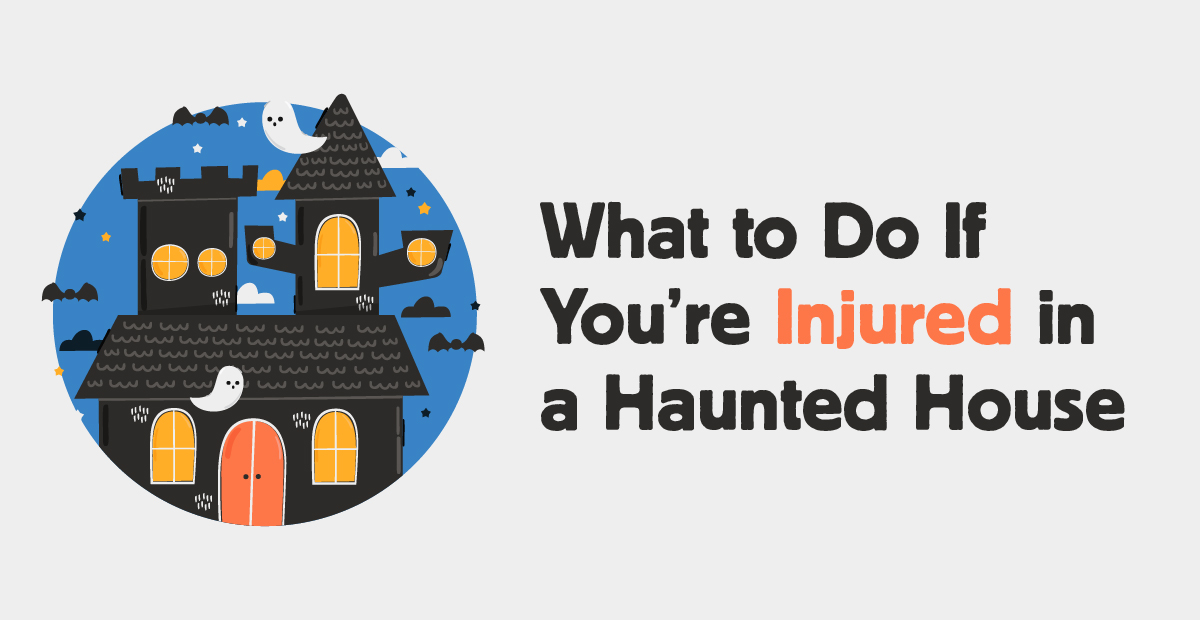Can I Sue If I’m Injured in a Haunted House?
Posted in Accident & Injury, Consumer Protection, Leisure on October 21, 2024

Visiting a haunted house can be thrilling, but what happens if the fear becomes real and you get hurt? Whether you tripped in the dark, were injured by a faulty prop, or got caught in a chaotic crowd, you may have grounds to seek compensation.
What to Do If You’re Injured in a Haunted House
If you’ve been injured in a haunted house, it’s crucial to take the right steps to protect yourself:
- Document the Scene: Take photos of your injuries and the area where the incident occurred. If there were witnesses nearby, get their contact information in case their testimony becomes crucial later.
- Seek Medical Attention: Don’t procrastinate seeking medical attention. Even minor injuries can worsen over time, and delaying treatment could weaken your case.
- Consult an Attorney: After taking care of your immediate needs, contact a personal injury attorney. They can evaluate your situation and help you determine the validity of your claim.
How Can an Elk + Elk Attorney Help with My Haunted House Accident?
An attorney can:
- Collect evidence to build a strong case
- Handle all communications with the haunted house’s owners and insurance companies
- Help prepare you for any legal proceedings
- Hold negligent parties accountable
- Calculate a fair settlement
What If I Signed a Waiver?
It’s common for haunted houses to have waivers, but signing one doesn’t mean you’ve given up all your rights. Although a waiver can protect a business from claims related to minor injuries like bumps and bruises from jump scares or dim lighting, it doesn’t cover everything.
- For example, if a poorly secured prop falls and injures someone or if a crowd tramples a visitor, the waiver may not protect the haunted house from liability.
How Long Do I Have to File a Lawsuit?
In most personal injury cases in Ohio, including injuries that occur in haunted houses, you have two years from the date of the incident to file. However, it’s always better to act quickly. Filing sooner allows your lawyer more time to gather evidence and track down witnesses. Additionally, since haunted houses are often temporary attractions, finding the business owners or operators later could be challenging if they’ve shut down.
What Should Compensation Cover?
While you might receive a quick settlement offer from the haunted house’s insurance company, it’s often a good idea to wait and assess your total costs before accepting. Insurance companies typically try to pay as little as possible, and their initial offer may not cover all your expenses.
A fair settlement should include compensation for:
- Past and future medical expenses
- Lost wages and potential future earnings
- Pain and suffering
- Loss of enjoyment of life
- Mental anguish and emotional distress
Contact Elk + Elk
If you get hurt in a haunted house, don’t assume you have no options just because you signed a waiver, or the injury seems minor at first. Haunted house operators are responsible for making sure their attractions are safe. If negligence occurs, you have the right to seek compensation. Taking action is crucial to protect your right and secure the compensation you deserve by having an experienced attorney like those at Elk + Elk.